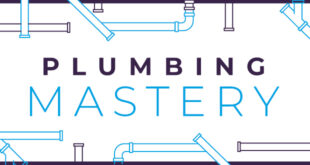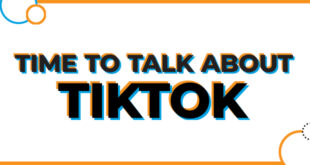You may have heard about the benefits of personality assessment tools — they can help you understand the behaviors and character traits of your employees. Used correctly, these tools can strengthen your company culture and promote a healthy team environment. But with many tools available today, which one is the best for you?
To get more information, Hardware Retailing editors asked Dr. Rob Mathews to explain the differences between a few of the more popular assessment tests. Mathews, who is executive director and instructor at the Entrepreneurial Leadership Institute at Ball State University, is a certified facilitator for multiple assessment tests and is co-creator of the Entrepreneurial Leadership Instrument.
What to Consider Before Investing
“Personality assessment tools can give you a greater self awareness while also helping you learn to appreciate what others bring to the table,” says Mathews. “It strengthens teams and helps you manage conflict because you will get insights into why people behave the way they do.”
Many of the popular tools available today will help achieve those goals, but it’s best to understand exactly what your needs are before choosing the best one for you.
Always ask yourself, “what are my goals and what am I trying to get out of it?” Also consider the cost. Some companies that provide personality assessments require you to purchase a site license, while others allow you to buy in bulk. In order to get the most out of your investment, you may also want to consider hiring a facilitator, or someone who can help you interpret the data and help you take the next step of using the results to build up your company culture.
“A lot of companies misuse personality assessments because they don’t have an expert to help them follow up and help them put the results into action,” says Mathews. “Some companies may even get into legal trouble because they mistakenly use a test as a hiring tool, when it’s not validated to have that function. Managers need to be trained in how to keep the test alive by building it into the language and culture of their company.”
Comparing Popular Tools
Since no two assessment tools are alike and each have different functions, Mathews recommends consulting someone who specializes in personality profile assessments before choosing one to use for your company. Here is a brief overview of some of the common tools. You can also check out this chart for additional information.
Myers-Briggs. One of the most widely used assessment tools, Myers-Briggs is the classic test that measures personality traits. It groups people into one of 16 different personality profiles using four different measurements. While it is popular and trusted with a strong online platform, it can be complicated and it is easy to forget the details when using it.
“This test is best used for surface-level team building sessions or very deep engagements,” says Mathews. “You’ll get the most use out of Meyers-Briggs if you use the advanced tools which help you drill down into the details. Your organization really needs to buy into this tool to make the most of it.”
DiSC Profile. This assessment tool is widely used in corporate America to measure communication and interaction styles, and how people influence each other. Most people use the version published by Wiley, which has a strong online platform with person-to-person relational tools. However, there are several copycat tests, which can make it confusing to find one that works the best.
“This tool is very easy to understand, but can create competition among team members,” says Mathews. “It’s usually used by corporations for team building or long-term projects.”
CliftonStrengths. Formerly known as StrengthsFinder, CliftonStrengths is produced by Gallup and the most widely used assessment tool today. It measures psychological talent by giving each person as many as 34 descriptors to describe how they naturally think and behave. Unlike other tests which compare your traits against others, CliftonStrengths is highly individualized and offers specific action items for personal development. For best results, get the full report, which comes at an additional cost.
“This tool tells you the most about a person, relative to any other tools,” says Mathews. “It describes what drives a person, how they behave when they are at their best or most fulfilled.”
Basadur Innovation Profile. Used by both large and small companies, including Microsoft and Google, the Basadur Innovation Profile measures your problem solving preference, innovation style and creative style. You’ll learn what role on the team best suits you.
“Simple to use and flexible, Basadur helps you understand your strengths,” says Mathews. “It has a strong online platform with resources and additional team tools. It is also one of the few tools on this list that is validated to use for hiring and placement.”
FourSight Innovation Profile. This assessment tool measures creative style and helps you understand how you best collaborate on a team to solve problems. It is widely used by large corporations and is very simple to understand.
“FourSight offers strong tools for the team and facilitator, but it has a fairly narrow focus,” says Mathews.
Builder Profile-10. Another tool by Gallup and formerly called the Entrepreneurial StrengthsFinder, Builder Profile-10 is used mainly to measure business, builder and entrepreneurial traits. It helps you understand what type of a leader you are and your dominant talents compared to the top 10 demands of running a successful business.
“The research for creating Builder Profile-10 came from studying high performance entrepreneurs and determining the 10 traits needed to be successful in business,” says Mathews. “This is a good tool to use for selection and placement, particularly in leadership roles. It shows you how you compare against the general population and against the top quartile of alpha builders.”
Entrepreneurial Leadership Instrument. Created by Mathews and Dr. Mike Goldsby at the Ball State University Entrepreneurial Leadership Institute, this assessment measures leadership and entrepreneurial style. It identifies the way you approach new opportunities and categorizes your style into one of four styles, making it a valuable tool for leadership teams and entrepreneurs.
“This is one of the few leadership style assessments on the market,” says Mathews. “It is simple to use and can be very useful as you are building a strong leadership team.”
 Hardware Retailing The Industry's Source for Insights and Information
Hardware Retailing The Industry's Source for Insights and Information








